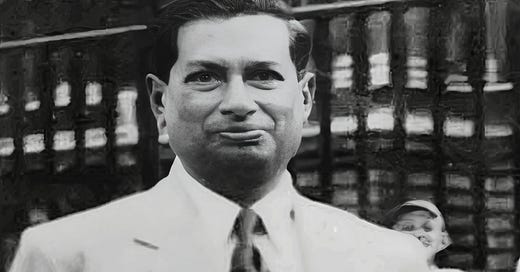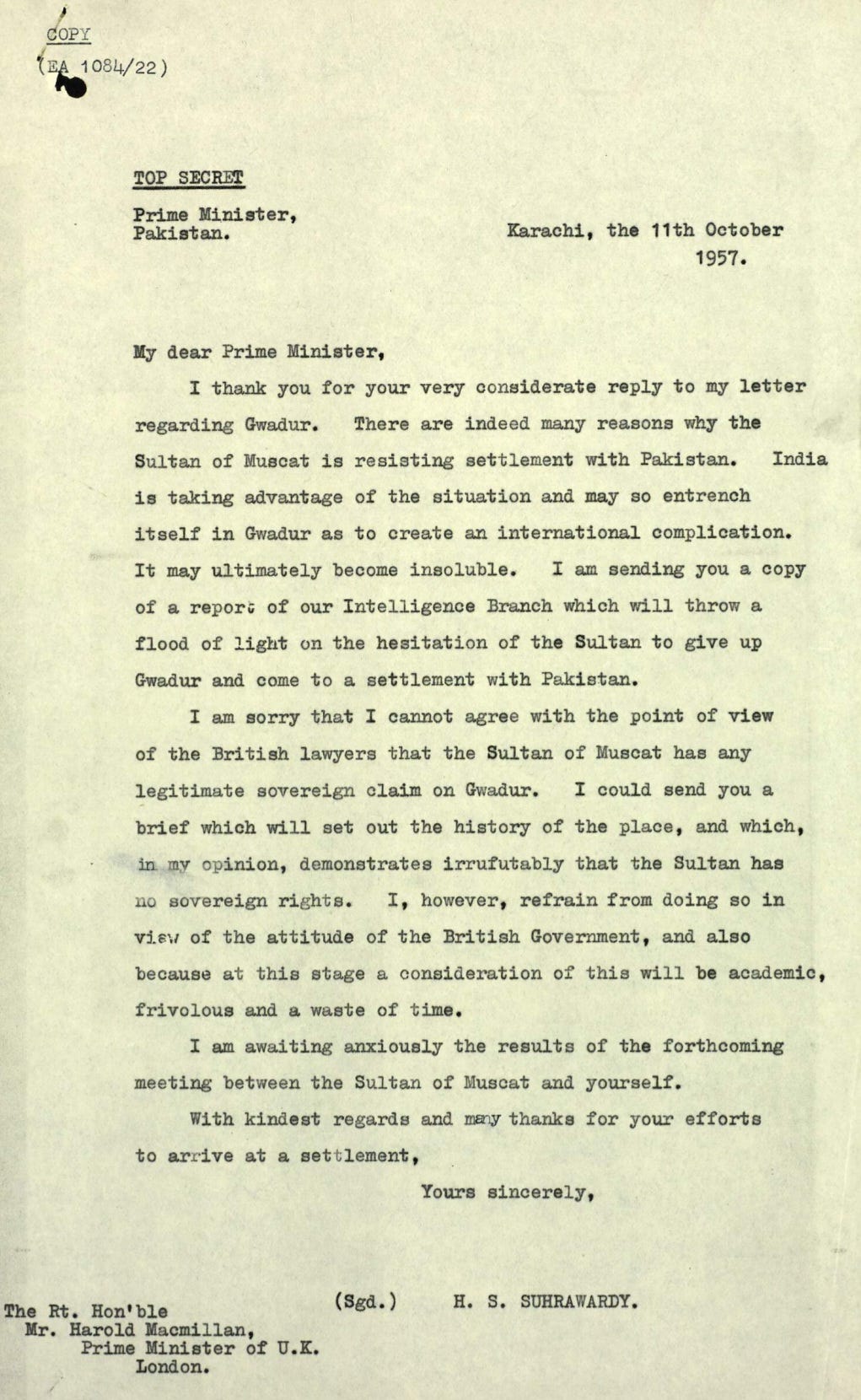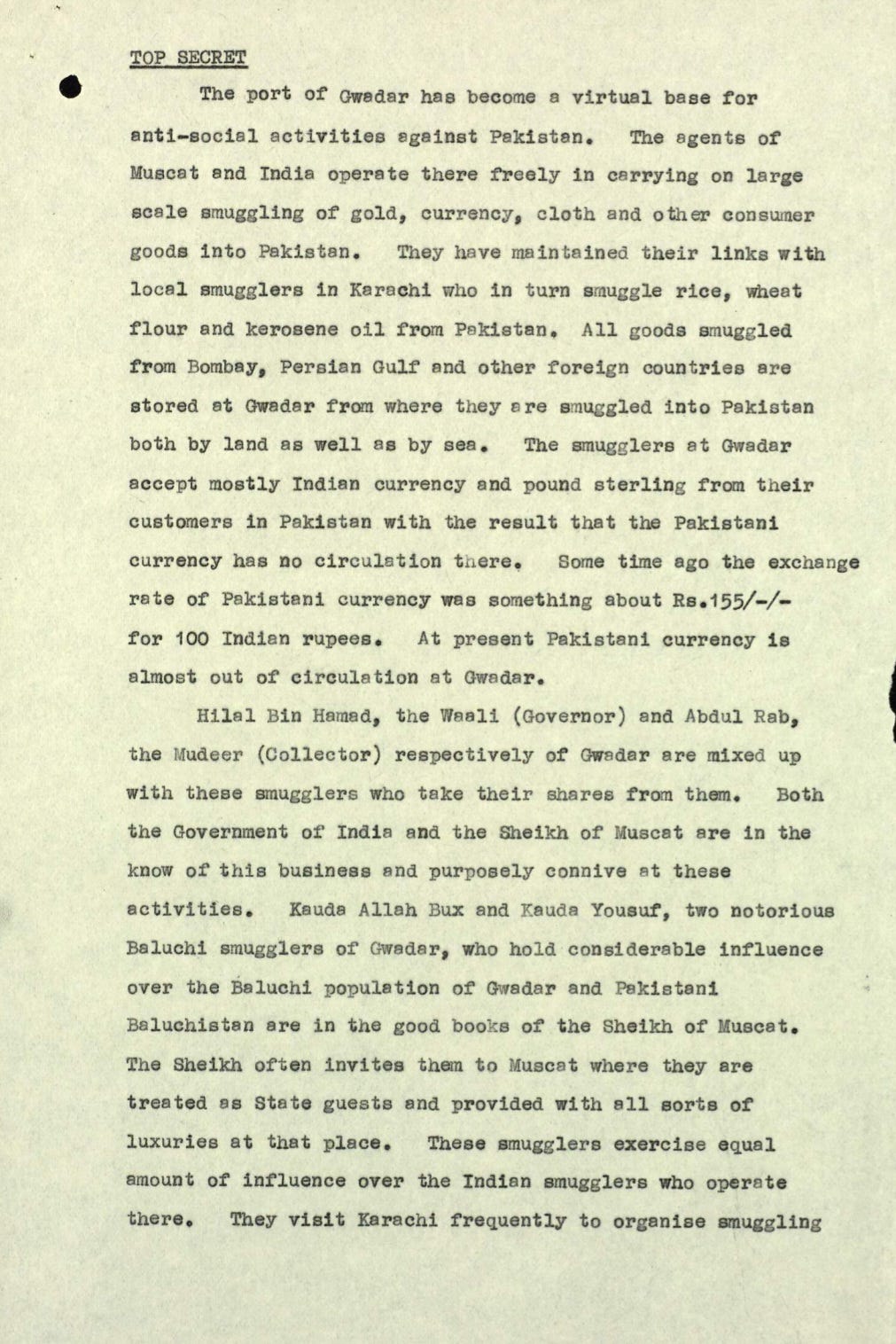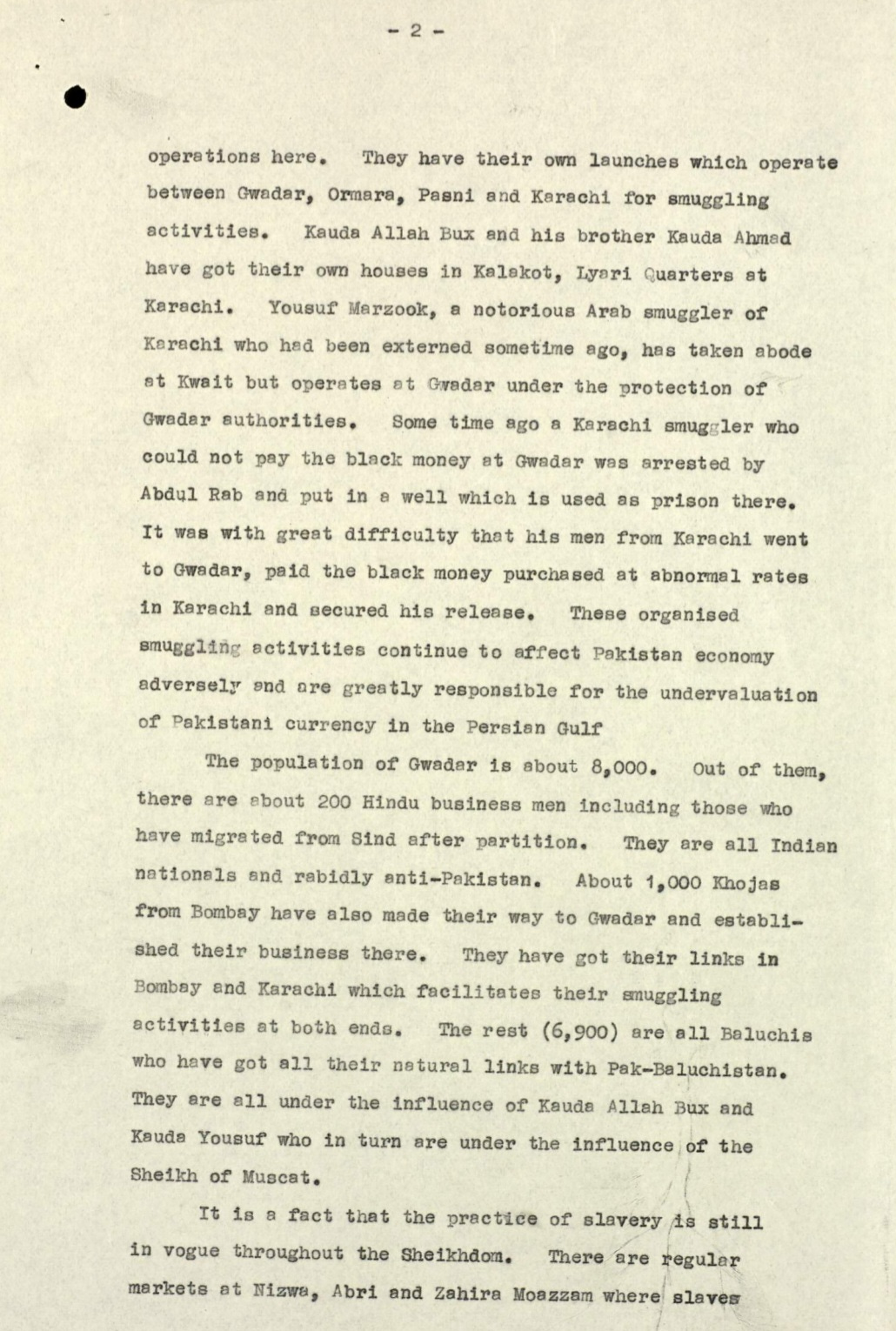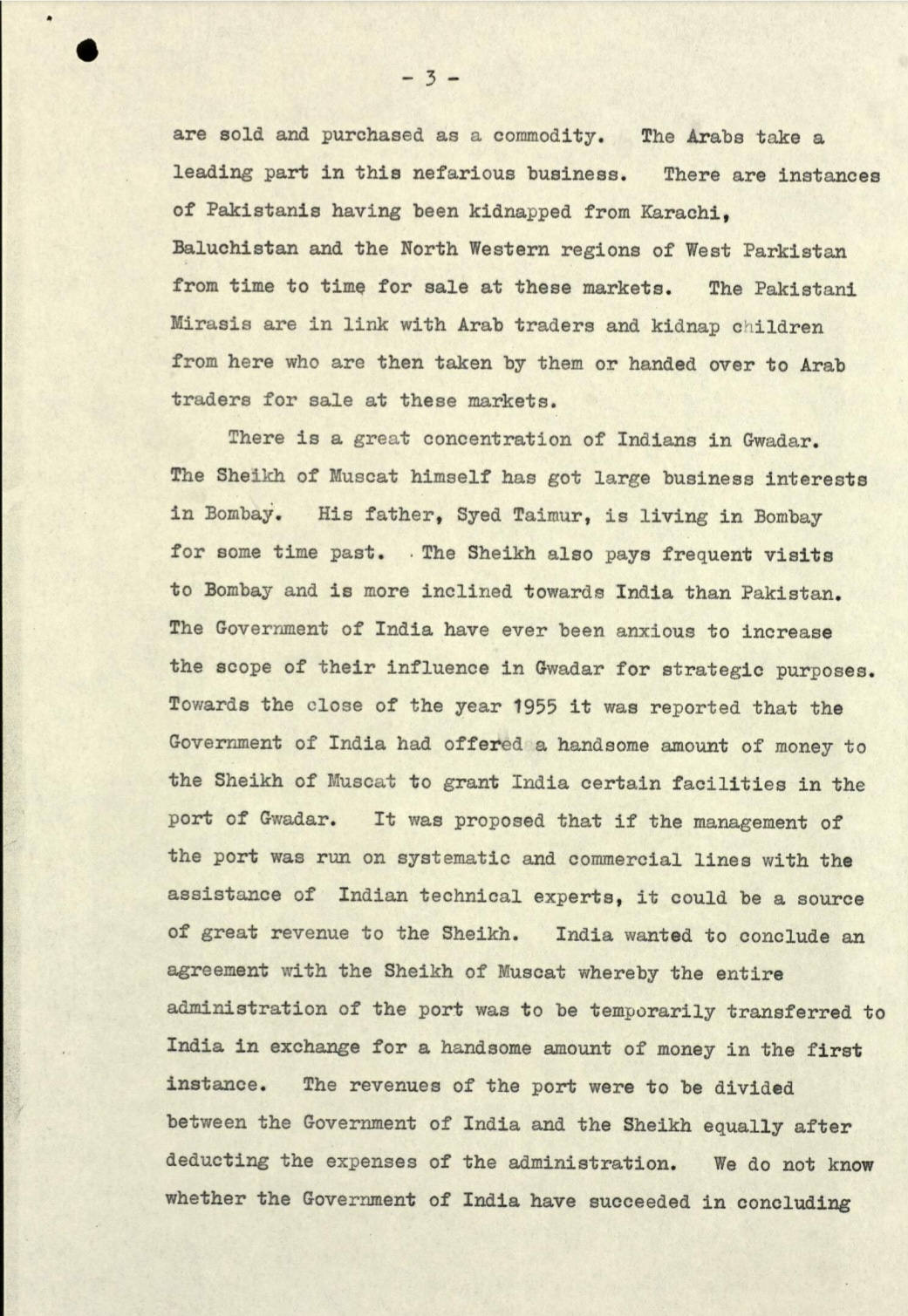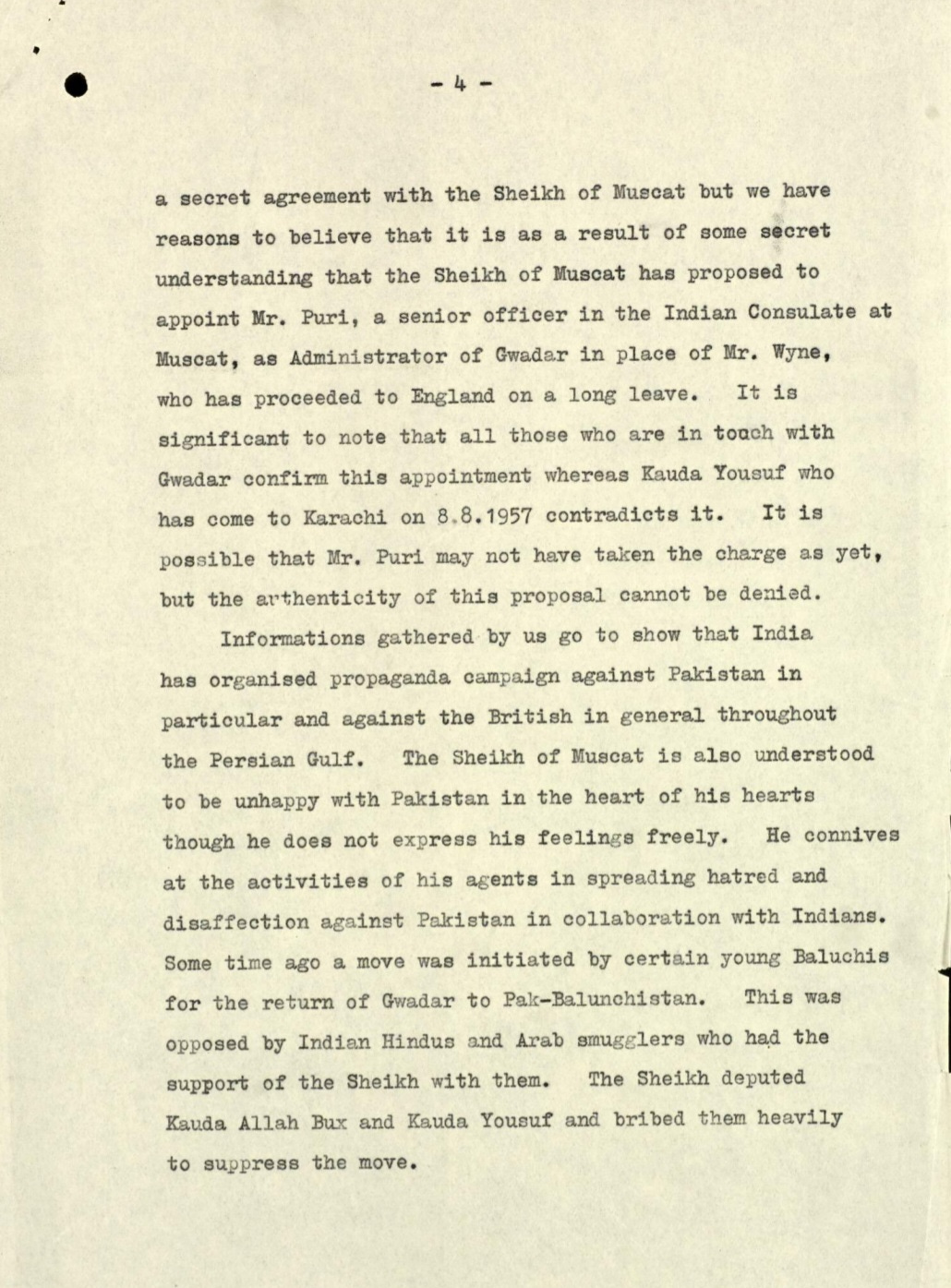Muazzam Husain Khan was commissioned as an officer in the Indian Police (IP) during British colonial rule in the Indian Subcontinent, which operated under the Home Department.
His service records in the Government of Pakistan could not be found, except brief mention in archives held by the Government of West Bengal, India. In fact, during preliminary research, it was difficult to even identify Ghulam Ahmed's successor at IB, were it not for informative snippets in the memoirs of Rear Admiral Musharraf Husain Khan (M.H. Khan) who served as the second (but effectively first) Bangladesh Navy chief and was one of Muazzam's four sons.
Critics may argue that relying extensively on excerpts from Musharraf's memoirs will offer a one-sided and biased perspective. It is not Musharraf but rather the State of Pakistan that should be held liable for what strongly appears to have been a deliberate exclusion of a former senior official's records from national historical archives [Note: A few specifics such as his actual term in office and factors behind his abrupt ouster may never be known, as all information so far has been painstakingly compiled through open sources].
Muazzam belonged to a family whose patriarch Mohammad Bahadur Khan could purportedly be traced to an area around Fergana in present day Uzbekistan (reportedly, DNA testing confirmed dominance of Turkish and Persian genes). Muazzam's father Javed Khan passed away from diabetes well before his grandfather (Yasin Khan); despite having a landed estate in Noorpur (Bengal) to his name, per Islamic law, Yasin could not nominate his grandson for inheritance. Consequently, in 1908, Muazzam (born 1903) was taken by his mother to her brother's place.
Known Academic History:-
Schooling and Matriculation from Nawabgonj Pilot High School (Dhaka)
BA then MA in Islamic History from the University of Dhaka
Known Professional History:-
Assistant Superintent of Police (On Probation) at Police Training College Sardah, then East Pakistan (1928-29)
Police service across Bengal in pre-partition India: Berhampore (present day India), Bogra (present day Bangladesh), English Bazar/ Malda (present day India), Dhaka (present day Bangladesh)
Director IB and Chairman Pakistan Police reporting to three successive Prime Ministers namely Mohammad Ali Bogra, Chaudhry Muhammad Ali and Huseyn Shaheed Suhrawardy (1953-57)
Muazzam was nominated by Prime Minister Mohammad Ali Bogra to succeed Syed Kazim Raza as third Director of Pakistan's Intelligence Bureau (IB). Both knew each other from pre-partition days when Mohammad Ali, then Nawab of Bogra, used to meet community leaders almost daily at Muazzam's official police residence in the Bogra District (late 1930s). Muazzam's rank was made equivalent to a Senior Secretary and empowered with combined chairmanship of defence, civil and national intelligence. This proposition would not be far-fetched at the time on account of the following reasons:-
1. Relative to the IB, which carried forward the legacy and 50+ years of operational experience of its predecessor in pre-partition Delhi, the Inter-Services Intelligence (ISI) was setup with a very modest structure by then Lieutenant Colonel Syed Shahid Hamid (1948-50) and its pioneers were still liaising with British authorities in London to setup different bureaus and acquire resources. Hamid’s successors as ISI Director, specifically during Muazzam’s term as IB chief, were by rank quite junior to him:
Brigadier Syed Ghawas (1953-55), who had returned from a stint as Senior Military Liaison Officer in the UK and was in all likelihood busy implementing structural suggestions from the UK Ministry of Defence.
Brigadier Malik Sher Bahadur (1955-57) was embroiled in political machinations at the behest of Army Commander-in-Chief Ayub.
Brigadier Muhammad Hayat (1957-58).
2. Pakistan Army's Military Intelligence (MI) had revealed its weaknesses during attempts to wrest Indian-Occupied Jammu & Kashmir (1947-1949). According to the memoirs of Pakistan's 6th and last Commander-in-Chief, Lieutenant General Gul Hassan Khan, MI in those days 'lacked a culture of professionalism'; following the 1951 Rawalpindi coup attempt, the MI became 'a CID type of organisation' focusing internally.
3. The 1951 assassination of Prime Minister Liaquat Ali Khan during Ghulam Ahmed's pioneering headship of IB, a few months after the coup attempt, was a major failure. This in itself may have prompted further empowering of the IB chief and allocation of greater resources at his disposal.
A brief and indirect reference to Muazzam (as "Director of Civil Intelligence") is found in the previously unpublished memoirs of Pakistan's first President Major General Iskander Mirza which were published in books authored by Ahmad Saleem and more recently by Syed Khawar Mehdi.
It was Muazzam who informed Prime Minister Mohammad Ali Bogra in London, during his return journey from the US, that Governor General Sir Malik Ghulam Muhammad intended to once again conspire with army chief General Ayub Khan to dismiss the sitting Prime Minister. Muazzam was anxiously waiting amongst a crowd to meet Mohammad Ali at the Karachi airport but the latter had already been whisked away by the Mirza-Ayub duo and later forced to change some of his key Cabinet members under pressure from Sir Malik Ghulam Muhammad (1954).
During a state visit to the US in July 1957, then Prime Minister Huseyn Shaheed Suhrawardy was requested by President General (Retd) Dwight D. Eisenhower to allow U-2 spy flights from Badaber base in Peshawar. Suhrawardy agreed in principle and by August 1957, the CIA led by Allen Dulles launched seven missions from Peshawar over Soviet and Chinese territories.
Musharraf narrates that during Dulles' visit to Karachi, Muazzam invited Dulles home for lunch and shared reservations about the CIA not sharing copies/ negatives of captured images with Pakistan; this was obviously a genuine concern arising from pure national interest and the right as a major ally to be treated fairly. Reportedly, Dulles got so frustrated by Muazzam's insistence that he abruptly left his home before lunch was even served by the lady of the house Mrs Shafia Khan.
In later 1957, Dulles received unwritten permission from an unnamed Pakistani intelligence agency and further from Mirza himself (via CIA Station Chief in Karachi) to use an abandoned Royal Air Force base in Kurmitula (outside Dhaka, East Pakistan) to exfiltrate Tibetan guerrillas; between 1957 and 1959, the CIA was given a free hand to conduct U-2 flights over China, particularly Tibet, something which would sound unbelievable today.
The agency which gave the permission was most likely the ISI under outgoing Brigadier Bahadur and incoming Brigadier Hayat; by then, it had assumed great influence through British higher defence guidance and continued funding through the 1954 Pak-US Mutual Defence Assistance Agreement. Ayub was rapidly expanding its power to later serve his political ambitions under Martial Law. It is also least probable that the IB chief (unlike, say, the Pakistan Air Force chief viz the ISI) would approve the use of a military air base.
Supposing that IB indeed had the final say, Muazzam was most likely ousted sometime after Suhrawardy's dismissal because it effectively marked the end of the so-called 'Bengali clique' which had greatly frustrated the dominant Punjabi politicians. Mirza was also annoyed that Suhrawardy sought a parliamentary vote of confidence to reassert his popularity and this matter was leaked to the press by his 'East Pakistani' i.e. Bengali colleagues (against his wishes). Suhrawardy was asked to resign or be sent home by Mirza, and so he wisely chose the former option. It would have been expected at the time to view Moazzam's presence (another Bengali) as highly irritating. It was around this time that Muazzam was replaced by Mian Anwer Ali, then Inspector General of Police in Punjab and a former Deputy Inspector General of Criminal Investigation Department (CID) in the same province.
The very fact that Dulles felt it necessary to call Mirza on Kurmitula, instead of liaising with IB through established back channels, also indicates that the entire process was politically maneuvered.
On a separate note, the scope of IB's strategic intelligence capabilities can be gleaned from a declassified archive of correspondence between then Prime Minister Suhrawardy and his British counterpart Harold Macmillan (October 1957). Suhrawardy discussed the issue of Gwadar and attached a detailed report by "Intelligence Branch" (official cover name for the Bureau) on the enclave's purported misuse by then Sultan of Muscat and Oman in connivance with India [Note: I intend to write a comprehensive series on Gwadar for this substack in the future and will discuss in detail then].
Extracts from UK Foreign and Commonwealth Relations Office archives courtesy of Arabian Gulf Digital Archive
After imposing Martial Law in the second half of October 1958, Ayub forced his patron and benefactor Mirza into exile in the UK, where he would eventually breathe his last and later be buried in Iran with full military honours by the latter’s good friend, Raza Shah Pahlavi (Shah of Iran). Ahmad Saleem and Syed Khawar Mehdi discuss how Ayub tried his best to destroy all logs and diaries owned by Mirza; it is very likely that Muazzam was accorded a similar fate i.e. systematic banishment from national history so future generations do not know him. Regrettably, the people involved appear to have succeeded.
Even more strangely, Muazzam has neither been discussed by any independent Pakistani historian or left-wing intellectual.
Miscellaneous:-
Upon his forceful ouster, Muazzam filed a case against Ayub in the court of law which was eventually dropped a few years later under pressure from martial law powers (circa 1958)
Musharraf mentions that he was appointed Navigation Officer of Pakistan Navy Ship PNS Tippu Sultan (formerly Royal Navy's HMS Onslow) which underwent refitting as a Type 16 frigate in Birkenhead from 1957-1959; Musharraf was part of the crew which sailed the vessel to Pakistan and by then his parents had emigrated from Karachi to Dhaka, East Pakistan (likely 1958)
Muazzam rented out his residence in Pakistan Employees Cooperative Housing Society (PECHS), Karachi to the British High Commission which was led by outgoing Sir Alexander Symon (end of 1961)
He invested and eventually setup the Star Alkaid Jute Mills Ltd (SAJML) in Chandpur, erstwhile East Pakistan (1963) which functioned in liberated Bangladesh also
He invested in one of his son's shipping companies that purchased the coastal ship Star Altair for inland river transportation (mid-1960s)
Following the liberation of Bangladesh in 1971, Muazzam and his wife Mrs Shafia Khan reunited with their son Musharraf after he and his wife Mrs Fahmida Husain Khan were repatriated through the UN (1973)
Muazzam passed away in Dhaka, Bangladesh in January 1976.
Muazzam's unflinching loyalty to the State of Pakistan can be gauged from the fact that he never participated in any of the efforts that indirectly helped forces inimical to erstwhile East Pakistan, spent the two decades or so in post-retirement Dhaka without seeking any favours from the Bangladesh government and, perhaps more tellingly, his son Musharraf remained in service with Pakistan Navy as Director Personnel Services. Eventually, he like other Bengali officers and sailors who remained dutiful were treated with humiliation and moved to Bangladesh, at once turning into strangers amongst their own.
References
Musharraf Husain Khan, 'Memoir of M.H. Khan'
Russell Lee, 'A High Flying Spy Plane', Smithsonian's National Air and Space Museum, https://airandspace.si.edu/stories/editorial/high-flying-spy-plane
Combined Civil List for India, No. 87, January-March 1929, https://archive.org/download/in.ernet.dli.2015.177778/2015.177778.The-Combined-Civil-List-For-India.pdf
File 3P-18. Progs. B 149. August. 1928. Bengal Police officers, West Bengal Archives, https://sadte.wb.gov.in/uploads/pdf/D34/D34144.pdf
Report of the Court of Inquiry 1954 (Punjab Disturbances 1953), https://ia803204.us.archive.org/14/items/The1954JusticeMunirCommissionReportOnTheAntiAhmadiRiotsOfPunjabIn1953/The-1954-Justice-Munir-Commission-Report-on-the-anti-Ahmadi-Riots-of-Punjab-in-1953.pdf
Lt General (Retd Gul Hassan, 'Memoirs of Lt General Gul Hassan'
Mohammad H.R. Talukdar, 'Memoirs of Huseyn Shaheed Suhrawardy with a brief account of his life and work'
Diana Bolsinger, 'Not at Any Price: LBJ, Pakistan, and Bargaining in an Asymmetric Intelligence Relationship, Texas National Security Review, https://tnsr.org/2021/11/not-at-any-price-lbj-pakistan-and-bargaining-in-an-asymmetric-intelligence-relationship/

